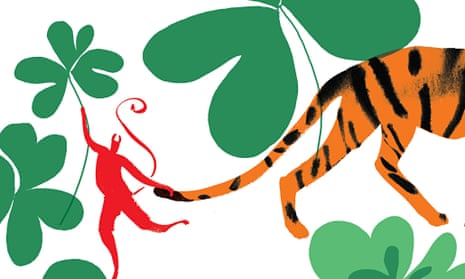
Illustration: Lara Harwood/Heartagency.com
A new Irish literary boom: the post-crash stars of fiction
“There weren’t that many significant debuts during the entirety of the boom,” Kilroy says now. “Back then, by becoming a literary writer, you were pretty much setting yourself in opposition to the dominant ideology of the time, which was to make money, buy property and spend ostentatiously. I would suggest that a large proportion of my generation has been artistically neutered, for the time being at least.”
“It was hard to write in Ireland during the Tiger times – there was a sense of ‘Get with the programme, you’re off message’,” agrees Anne Enright, who was appointed the inaugural laureate for Irish fiction at the beginning of this year. “The boom was also estranging – the whole dance of it.”
Murray’s latest novel, The Mark and the Void, is set in Dublin’s financial district at the moment the whole teetering edifice of derivatives and inter-banking loans came crashing down, and features a bitter failed novelist, also called Paul, whose crippling mortgage on a jerry-built luxury flat drives him towards bank robbery. Writing? “I don’t do that shit any more.”
So what’s happening now? “The glorious old-fashioned thing that you can’t get a job, you might as well write, has always applied in Ireland,” continues Enright, who says the current renaissance has been brewing for a couple of years. “It has something to do with the agility of the small presses and their ability to pick up talent and run with it. Things in the UK feel increasingly corporate – everybody there has amalgamated.” While the wave of Irish novelists who rose to prominence in the early 90s – Enright, Roddy Doyle, Colm Tóibín, Sebastian Barry – tended to be published from London, the current dynamism of Ireland’s publishing scene means that new authors are being picked up there first.
Longstanding literary magazine Stinging Fly, which showcases new Irish and international writing, has had its own publishing imprint for a decade. It is run by Declan Meade – a man who, Enright says, “has never made a mistake. His list of authors is completely impressive” – and brought out the debut collections of Barry (Impac winner), Barrett (Guardian first book award winner) and the Costa-shortlisted Mary Costello. Stinging Fly has been instrumental in, as Julian Gough puts it, “changing the landscape of Irish fiction, issue by issue, book by book”. Short stories, often seen as hard sells by bigger publishers, are its life blood. Its newest title, published last week and slated for UK release in January, is Danielle McLaughlin’s Dinosaurs on Other Planets, “not just a book of short stories,” as Enright points out, “but a book of anticipated short stories. Could such a thing exist in England?”
Last year also saw the launch of the energetic new publisher Tramp Press, which picked Baume from the slush pile, while journals such as Gorse and Banshee are springing up all the time. Sarah Davis-Goff and Lisa Coen, the pair behind Tramp, decided to join forces when their contracts at fellow indie Lilliput Press ran out. They point out that it’s easier to set up a company, to risk losing everything, “if you don’t have anything to lose”. As well as Baume’s novel Spill Simmer Falter Wither, now longlisted for the Guardian first book award, they commissioned a centenary anthology of reworkings of Joyce’s short stories, Dubliners 100. They sum up their manifesto as: “Only publish stuff that’s so exceptionally exciting it makes us want to set ourselves on fire and jump out of a window; be ballsy; never stray too far from the slush pile.”
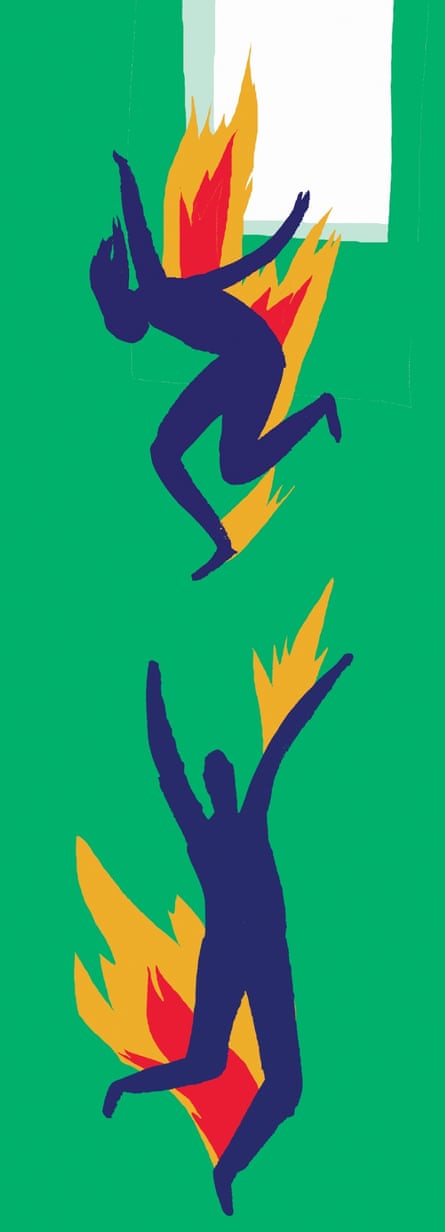
As with Stinging Fly, this willingness to take the kinds of risks that corporate publishers never would is what makes the books special – but it takes money. Davis-Goff stresses the role of the Irish Arts Council in the current resurgence, whose literary branch is “extremely supportive” of new work. “There are talented writers with excellent publishing opportunities, a little bit of money to go around and a supportive media. And the readers themselves are engaged: they go to launches, they’ve book clubs, they talk to each other, they get to the literary festivals.” Meade agrees that funding is key, “both directly for writers and then also for the general literary infrastructure of festivals, publishers, resource organisations”. Cuts have been made, of course, but there is still an emphasis on funding new writers.
Small presses create possibilities for experimental writers, the most obvious recent example being McBride’s A Girl Is a Half-formed Thing. This year notable debuts have included Caitriona Lally’s whimsically strange Eggshells from Liberties Press, about a Dublin woman who thinks she is a changeling; and the contemplative, insular Pond by Claire-Louise Bennett, an English writer who has settled in Galway, published to huge acclaim by Stinging Fly in Ireland earlier this year and Fitzcarraldo in the UK this month. But the experimental strain isn’t confined to the tiny outfits: Gavin Corbett has followed up his extraordinary monologue in the voice of an Irish Traveller, This Is The Way, with the riotously strange Green Glowing Skull for 4th Estate, while Rob Doyle’s second book, out next January from Bloomsbury, will be a series of fragmented pieces hovering between fiction and non-fiction, This Is the Ritual. Hawthorn and Child, an expectation-confounding quasi-crime novel from Dublin author Keith Ridgway, who now lives in London, was one of the literary highlights of 2012.
“I think it would be smug and premature to herald a golden age but maybe a proper radicalism is at last starting to re-emerge in Irish writing,” says Barry, who is credited by many with re-energising Irish fiction. “We should always remember that being innovative and wild and not afraid to go completely fucking nuts on the page is what built its reputation in the first half of the 20th century.”
It is all very different from five years ago, when the Berlin-based writer Gough ruffled feathers by describing Irish literary writers as “a priestly caste, scribbling by candlelight, cut off from the electric current of the culture”. For a while, historical novels were the order of the day, concentrating on deprivation and emigration, rural poverty, famine and the power of the church. “Irish literature had gotten smug and self-congratulatory during the boom; lots of novels about how terrible Ireland’s past was, with all its sexual repression and poverty,” Gough says now. “Heritage literature, and very conservatively told. All old-fashioned lyrical realism, not a trace of the wild experimentalism of Beckett, Joyce and Flann O’Brien.
“The unspoken assumption was that we were much wiser and nicer and smarter, and richer, now. It was moral masturbation. The crash plunged us back into self-doubt and anger and black humour and negative equity; places in which Irish literature is more comfortable. Irish writers function best when everything is going to hell, whether a psyche or an economy.”
Today’s writers, Enright says, are writing “about anything at all, and that includes contemporary Ireland. That fictional sense of ‘Grand Ireland’, which happened in the past and was rural, has gone almost entirely.” She also points to “a confidence in female voices that I haven’t seen ever before – a hugely important thing. Traditionally, Irish writing has been about breaking silences. The biggest silence has continued to be about the real lives of women.” Enright herself muses on various silences – of betrayal, of female experience, of the nationwide suspension of disbelief as the property bubble went into overdrive – in her 2011 novel The Forgotten Waltz, which looks back on an adulterous affair during the boom years from the colder, wiser vantage point of the crash. This year’s The Green Road takes two classic Irish subjects, the west of Ireland and a family’s relationship to the matriarch at its centre, then spreads its wings to New York and Mali as well as diving deep into the perspective of Rosaleen, the difficult mother at the heart of the book. “I am not a Freudian about this money shit,” Enright wrote in a 2010 article about the crash. “These days I play with the idea of money as mother’s love: her body, her attention, the blessing of her gaze.”
Belinda McKeon and Claire Keegan have also won acclaim for novels exploring the changing mores of countryside and family, while the anthology The Long Gaze Back, published by New Island last month, showcases 30 stories by female writers including Christine Dwyer Hickey, Lucy Caldwell and Lia Mills. “If anything 2015 is dominated by new Irish female voices,” says the anthology’s editor, Sinéad Gleeson. “The old patterns of male-dominated anthologies, men-only book panels and reverence around men’s writing are finally changing.”
“New zines, new writers, new arguments, lots of experiments, Ireland finally connecting properly with its diaspora; it’s a wonderful time to be an Irish writer,” concludes Gough. “Everything’s improved since 2010, except house prices in Leitrim.”
Paul Murray
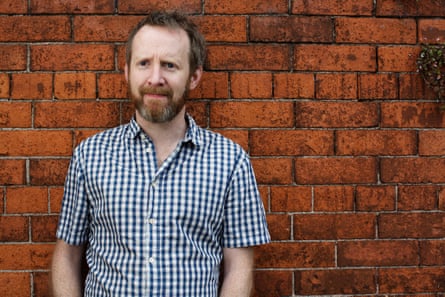
Murray’s first novel, An Evening of Long Goodbyes, mocked boomtime Ireland through the figure of a pretentious young layabout who longs to live in a more refined age, but it was his second book, Skippy Dies – a tragicomic boarding school epic taking in love, lust, string theory and existential crises – that made him a star. It also vertiginously raised expectations for his next novel, this year’s The Mark and the Void, which tackles the global financial crash, and Ireland’s starring role in it. Murray, now 40, had been planning a book about the Irish banking system since 2002, when his sister took a job working for the Bank of Bermuda in Dublin. His descriptions of the financial apocalypse as seen by Claude, a business analyst with the Bank of Torabundo, may read like hyperbolic satire, but are firmly rooted in the feverish actuality: when it comes to the corruption, graft and confidence tricks of derivatives trading, you didn’t have to make it up. The book is a wry, tricksy enactment of the difficulties of facing up to reality when the stories we have let ourselves believe turn out to be baseless, and the challenge of making up new ones.
Eimear McBride
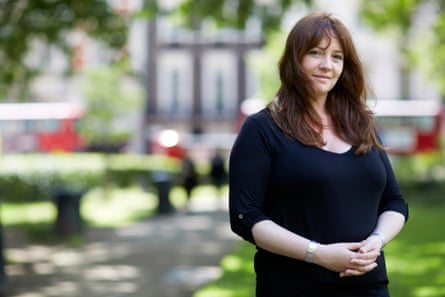
Written in 2004, turned down by all the major houses with “glowing refusals” and eventually brought out by a small press in 2013, A Girl Is a Half-formed Thing has been one of publishing’s more unusual success stories. Sparked by reading Ulysses on her morning commute to a dead-end job, the dense, fractured prose of McBride’s debut has its roots in the modernism of Joyce, Beckett and Faulkner. A young woman, growing up in an atmosphere of Catholic shame and guilt, wrestles with psychological and sexual trauma after being abused by her uncle, addressing her monologue to a beloved brother who was damaged in childhood by a brain tumour: “You there sleeping. My boy. My brother. Wish my eye for yours tooth for your tooth. You’re a better. No. It’s all fuck gone. Gone to the gone to the wrong wrong wrong.” McBride has described her style as “attempting to tell a story from a point so far back in the mind that it is completely experiential, completely gut-reactive and balancing on the moment just before language becomes formatted thought”. It is a visceral, overwhelming read, which took not only the inaugural Goldsmiths prize, set up to reward innovative fiction, but the Baileys women’s prize for fiction, generally a far more mainstream award.
Born in Liverpool to Northern Irish parents who moved to the Republic when she was two, McBride left Ireland to go to drama school in London and now lives in Norwich. Subject and style place her firmly in the Irish tradition, but “for literal, as well as motivational, reasons I feel much closer to the diaspora writers. Edna O’Brien became very important to me early on in my reading life and the small difference between the ‘in’ and ‘of’ perspective describes my own position.”
McBride’s second novel, The Lesser Bohemians, has been eight years in the writing, and will be published by Faber next year. Set in 1990s north London, it centres on a young woman who, like McBride, has come over from Ireland to study acting, and promises an “evolution” in the style of her debut. “The financial crisis has slain some of the complacencies and made room for the plethora of interesting small presses, whose focus is considerably higher than a lot of the pudgy, gormless rubbish that was so touted in times gone by,” McBride says. “It is also worth saying that many of the writers who have gone up through the literary ranks in the last 10 or 15 years are proving considerably more supportive of those coming behind than may traditionally have been the case.”
Kevin Barry
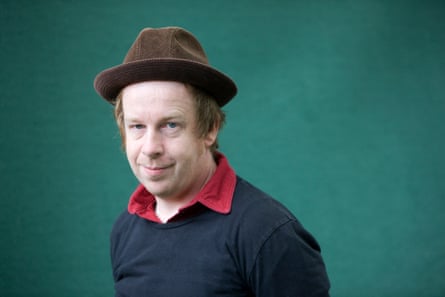
Barry’s debut short story collection There Are Little Kingdoms, published in 2007, announced an unstoppable new voice. He followed it with City of Bohane, a brash, swaggering fantasia set in a twisted version of the west of Ireland with shades of the old wild west, which went on to win the Impac prize. Though set in the 2050s, the novel has its roots in Ireland’s early-21st century apocalypse: “I think it reverberates off the lurid and desperate tone or notes that played in actual Irish cities at that time,” Barry says now. “Whenever you set a story in the future, it’s always a kind of projection on the present moment.” His new novel Beatlebone, published this month and already shortlisted for the Goldsmiths prize, is a gloriously freewheeling tale imagining an attempt by John Lennon to visit the island he had bought off the coast of Mayo in 1967 (and which came back on the market in the wake of the recession). Barry weaves his own odyssey to “Beatle Island” into a tale of fame, freaks, bad liquor and bad weather, with Lennon – angry, brilliant, sarcastic, tender, on a doomed quest for artistic release and his Irish roots – at its centre.
Donal Ryan
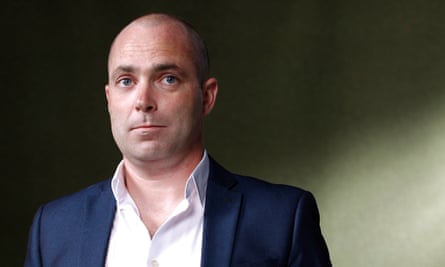
Described by Sebastian Barry as the “chief pathologist and poet” of the Celtic Tiger’s bones, Donal Ryan had amassed no fewer than 47 rejection letters before publishing The Spinning Heart, a polyphonic novel about an Irish village reeling under the recession that took the 2013 Guardian first book award, as well as being shortlisted for the Impac award and longlisted for the Booker. Told through 21 linked monologues – from laid-off construction workers and thwarted youths to a single mother stuck on a half-finished ghost estate – it pieces together a darkly brilliant portrait of a community in crisis. Ryan has since published The Thing About December, set in the same fictional village a decade earlier when soaring land values stoked a frenzy to buy, and this autumn’s short-story collection, A Slanting of the Sun, which continues to anatomise rural despair.
Ireland feels “less stressed now”, he says, than in 2010, when he began The Spinning Heart. “Our innate fatalism has been compromised a little bit by our awakening to our own resilience: the worst happened to us economically and we’ve mostly survived. Almost unbelievably, though, the mindless, half-arsed, a-la-carte neoliberalism that nearly destroyed us is already starting to resurrect itself.”
Sara Baume
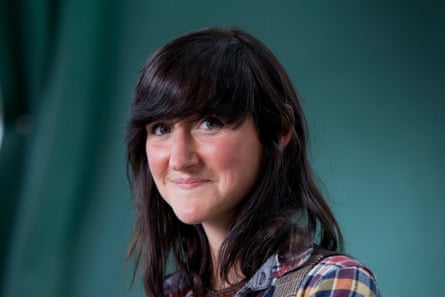
For Sara Baume, the recession was a key factor in finding her voice. A fine art student who went on to do a creative writing MA, she was driven out of Dublin after the crash by a combination of soaring rents and dwindling job opportunities, and found herself scraping by in rural Cork. “Spill Simmer Falter Wither could certainly never have been written if I’d been working in a nice job and living in the city,” she says. “It came about almost directly as a response to the change in my circumstances, and I really only managed to finish it because I felt under no apparent pressure to avail myself of more lucrative opportunities; there simply weren’t any. The recession forced me to reassess the essentials, even granted me the freedom to just write.”
Arranged in four sections that span the seasons, her novel is set in an unnamed town on the Cork coast rather like the one where Baume now lives, with Ray, a withdrawn man in his late 50s – “Too old for starting over, too young for giving up” – pouring out his pent-up feelings to an unprepossessing mutt called One Eye, who lost the other to a badger in a fight. Ray is the kind of outsider you find, Baume says, in every village in rural Ireland, as well as shambling through the pages of Beckett or Patrick McCabe. But Baume’s prose has an energy and cadence all her own: utterly unsentimental, but in its open-hearted, sidelong engagement with the mercurial One Eye and the changing seasons, strangely joyous. Ray’s life may be tragic, his potential stifled and hopes ignored, but he tells his story, as Baume’s early champion Joseph O’Connor put it, with “the measured tenderness of a man who doesn’t realise he’s in love with the world”.
Oona Frawley
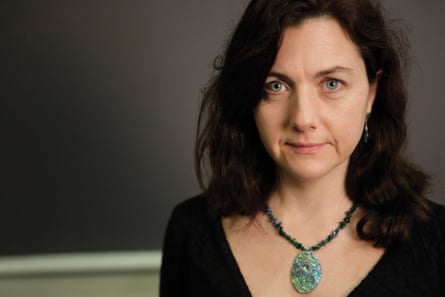
Like McBride’s A Girl Is a Half-formed Thing, Oona Frawley’s impressively cosmopolitan debut Flight languished for nearly a decade without a publisher, before it became the launch title for Tramp Press last year. It was written in “a very different Ireland”, says Frawley, who was born in New York to Irish actor parents, but moved to the Republic as an academic in 1999. “One that couldn’t see the financial crisis coming, or quite how it had transformed into a multicultural society.” When she initially sent the book out, publishers objected to the main character, a black Zimbabwean woman working in Ireland to earn money to send back home. “It was said repeatedly that Flight didn’t fit into the categories of the Irish novel. There was a request to cut Sandrine, and another to make her Polish. They didn’t seem to believe that readers would accept an Ireland or versions of Irishness that challenged the standard mode.” Today the book reads as an assured portrait of a changing country, and the moment it became a magnet for migration rather than the reverse: it is set in the runup to 2004’s referendum on ending automatic citizenship for babies born in Ireland, an issue that becomes increasingly urgent for Sandrine, who is nursing a secret pregnancy. She works as a carer for an elderly couple lapsing into dementia, and their memories of life abroad, working in the spice trade, are woven into the narrative along with Sandrine’s homesickness and her cautious exploration of her new, rainy, unwelcoming home.
Lisa McInerney
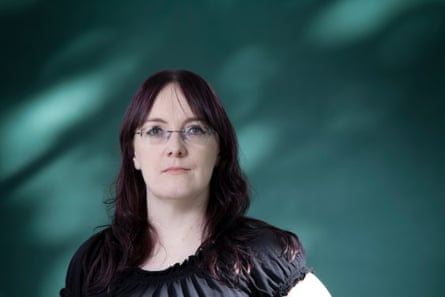
Born in 1981, Lisa McInerney was celebrated for her blog long before her debut novel, The Glorious Heresies, came out this spring. She started Arse End of Ireland, a sideways look at life in a Galway council estate, in 2006, but “I always felt like a slumbering novelist”, she says. “Blogging obviously requires a much more rapid-fire kind of creativity; the requisite writing is both shallow and risky. What it did give me was a deep appreciation for the kind of gallows humour particular to Ireland – canny, irreverent, occasionally cruel.” The Glorious Heresies, which evolved out of a first, “relentlessly grim” novel about post-Magdalene, post-crash Ireland, is all three: a rollicking tale of drug-dealing, young love and accidental murder in Cork. “Many of us outside Dublin didn’t experience much of the boom,” she points out. “I wonder if things have not so much changed post-crash as returned to normal. On an everyday level, it meant that I had to move to the countryside so I could afford to write full-time, which is a problem because I’m happiest in the city. But writers are supposed to be miserable, right?”
Mary Costello
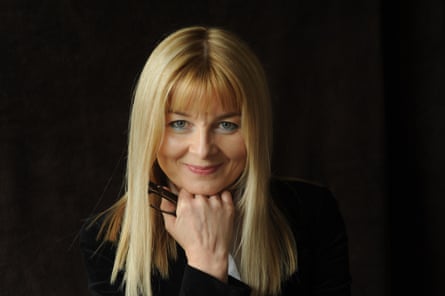
“My ears pricked up when I saw Mary Costello being published by Stinging Fly because I thought it was going to be another boys’ club,” Enright says. She was an early supporter of Costello’s debut short-story collection, The China Factory, which zeroes in on big events in ordinary lives. Costello grew up in Galway and now lives in Dublin; her first novel, Academy Street, was a beautifully understated portrait of one woman’s life, from the early loss of her mother in 1940s rural Ireland, to emigration and a withdrawn yet intense adulthood in New York. Shortlisted for the Costa first novel award in 2014, its quiet power is reminiscent of Tóibín.
Tana French
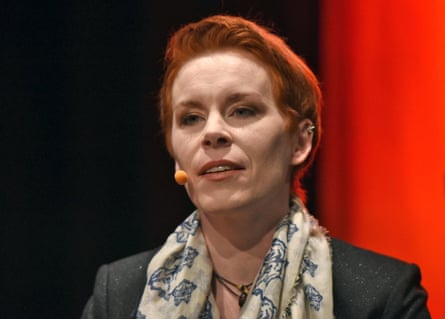
Crime fiction, says Tana French, is ideally placed to explore the huge collective moral and psychological upheaval that hit Ireland over the last couple of decades. Her Dublin Murder Squad series brilliantly anatomises modern Ireland and its uneasy relationship between past and present, with her 2007 debut In the Woods investigating an old mystery unearthed by the construction of a boomtime motorway. Broken Harbour is set on a half-built ghost estate outside Dublin, where a family’s golden existence has been brought to a bloody end by the crash. “I was writing it surrounded by the wreckage of the economic boom and the devastation it had wreaked – not just financially, but psychologically and morally – on great swaths of my generation,” French says. “I ended up with a book about what happens when people do what they’re told to do, follow the rules, and then the rules kick them in the teeth.” French was born in the US but has adopted Dublin as her home, and sees her work as very much in the Irish literary tradition. “The themes that fascinate me,” she says, “the tricky and often dark interplay between past and present, the human need to define and/or construct reality through imagination and language – run straight through Irish literature.”
Claire Kilroy
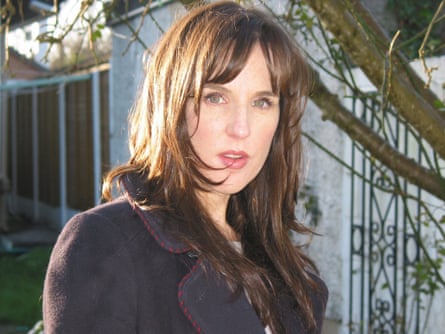
“I remember turning on the radio one Sunday afternoon in 2009 after the crash and hearing Neil Jordan speaking at the Farmleigh Global Economic Irish Forum,” says Kilroy, who was born in 1973 and studied for a creative writing MPhil at Trinity College, Dublin. “He pointed out that the banks had failed the Irish people, the church had failed us, the government had failed us, but the culture industry had not failed us. I was working on my boom and bust novel, The Devil I Know, at the time.” The book dramatises the property bubble through the figure of an alcoholic returnee to Ireland, bemused by the equally addictive behaviours he sees around him. It is both a medieval morality play, with the devil lurking in the background, and a barbed, lyrical portrait of modern Ireland. It follows three earlier novels about art and obsession, including All Names Have Been Changed, set among Dublin creative writing students in the 1980s. Kilroy plans to set her next novel outside Ireland. “Having become a mother in 2012,” she says, “I’m writing about the boom and bust I’ve experienced with that.”
Colin Barrett
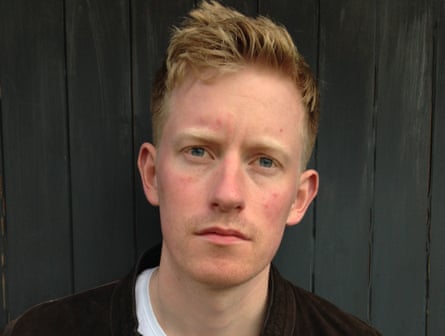
Born in 1982, Barrett grew up in County Mayo and worked for a mobile phone company in Dublin before doing an MA in creative writing. His slim short‑story collection Young Skins, published by Stinging Fly in 2013 and Jonathan Cape a year later, won two prizes. The pieces are nearly all set in the fictional town of Glanbeigh in the west of Ireland – “nowhere you have been, but you know its ilk” – among young people kicking against the bounds of smalltown life. Stark, tender, lyrical and gritty by turns, they bear the influence of US masters Denis Johnson and Barry Hannah but also announce a remarkably achieved new voice. Barrett has said that he is attracted to the short‑story form “for its capacity to access and maintain intensities – tonally, atmospherically, linguistically – that more capacious narrative forms too often cannot tolerate”. He may not be done with Glanbeigh yet.
Julian Gough
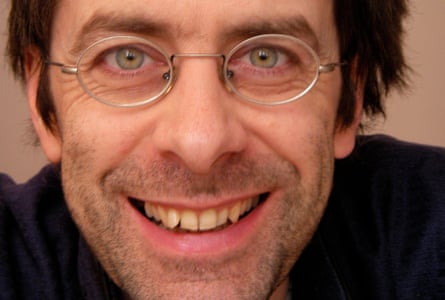


No comments:
Post a Comment